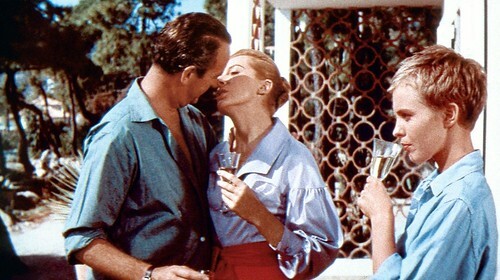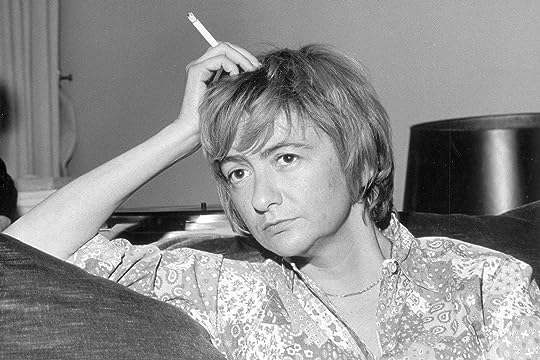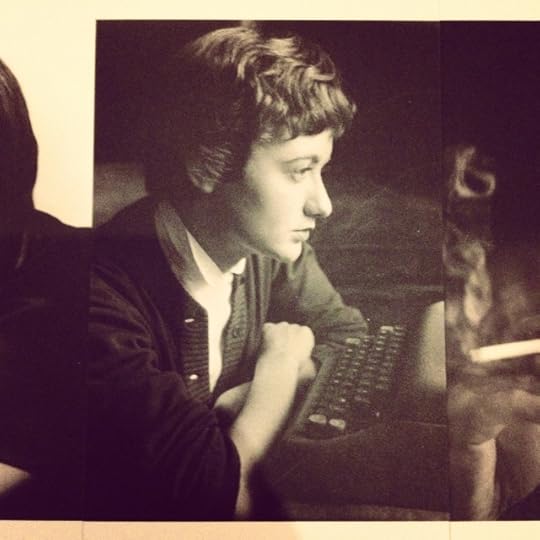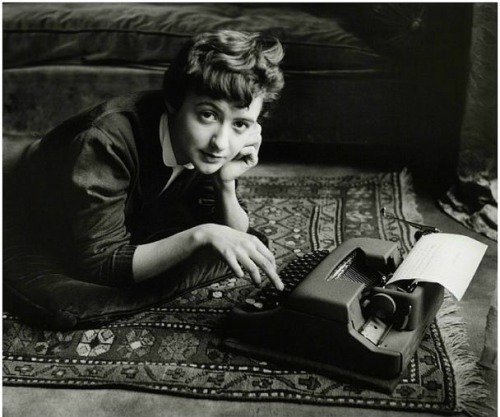What do you think?
Rate this book


130 pages, Paperback
First published March 15, 1954

‘I made this attitude my own with far more conviction, I think, than if I had immediately put it into practice. I believed I could base my life on it…I visualized a life of degradation and moral turpitude as my ideal.’
‘it was for this I reproached Anne: she prevented me from liking myself. I, who was so naturally meant for happiness and gaiety, had been forced by her into a world of self-criticism and guilty conscience, where, unaccustomed to introspection, I was completely lost. And what did she bring me? I took stock: She wanted my father, she had got him. She would gradually make of us the husband and step-daughter of Anne Larsen; that is to say, she would turn us into two civilized, well-behaved and happy people’


Je passe vite sur cette période, car je crains, à force de chercher, de retomber dans des souvenirs qui m'accablent moi-même. Déjà, il me suffit de penser au rire heureux d'Anne, à sa gentillesse avec moi et quelque chose me frappe, d'un mauvais coup bas, me fait mal, je m'essouffle contre moi-même. Je me sens si près de ce qu'on appelle la mauvaise conscience que je suis obligée de recourir à des gestes: allumer une cigarette, mettre un disque, téléphoner à un ami. Peu à peu, je pense à autre chose. Mais je n'aime pas cela, de devoir recourir aux déficiences de ma mémoire, à la légèreté de mon esprit, au lieu de les combattre. Je n'aime pas les reconnaître, même pour m'en féliciter.
Mais je ne disais pas à Elsa de lui céder ni à Anne de m'accompagner à Nice. Je voulais que ce désir au cœur de mon père s'infestât et lui fît commettre une erreur. Je ne pouvais supporter le mépris dont Anne entourait notre vie passée, ce dédain facile pour ce qui avait été pour mon père, pour moi, le bonheur.
Je voulais non pas l'humilier, mais lui faire accepter notre conception de la vie. Il fallait qu'elle sût que mon père l'avait trompée et qu'elle prît cela dans sa valeur objective, comme une passade toute physique, non comme une atteinte à sa valeur personnelle, à sa dignité.
Elle se redressa alors, décomposée. Elle pleurait. Alors je compris brusquement que je m'étais attaquée à un être vivant et sensible et non pas à une entité. Elle avait dû être une petite fille, un peu secrète, puis une adolescente, puis une femme. Elle avait quarante ans, elle était seule, elle aimait un homme et elle avait espéré être heureuse avec lui dix ans, vingt ans peut-être. Et moi... ce visage, ce visage, c'était mon œuvre. J'étais pétrifiée, je tremblais de tout mon corps contre la portière.
Seulement quand je suis dans mon lit, à l'aube, avec le seul bruit des voitures dans Paris, ma mémoire parfois me trahit: l'été revient et tous ses souvenirs. Anne, Anne! Je répète ce nom très bas et très long- temps dans le noir. Quelque chose monte alors en moi que j'accueille par son nom, les yeux fermés: Bonjour Tristesse.

